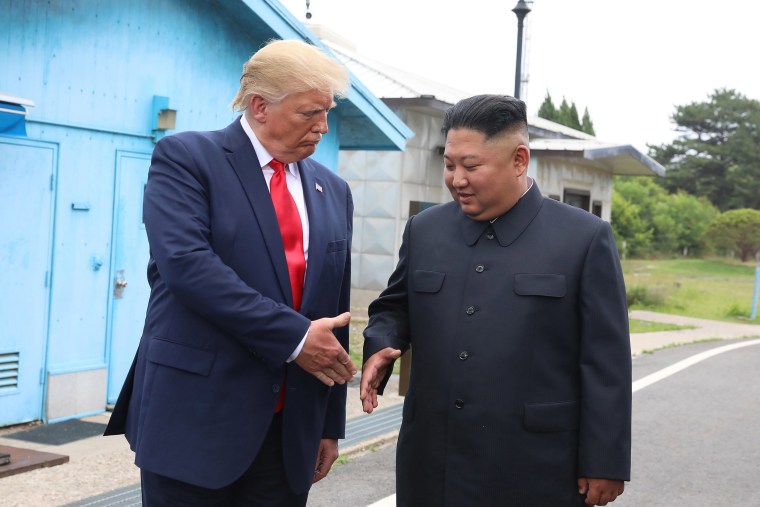In one of his Fox News interviews in August, Donald Trump reflected on the challenges of international diplomacy. Referring to leaders of global rivals, the president said, "I can tell you one thing, they're very sharp. They're at the top of their game. And if you're not at the top of your game, it's not going to be a pretty picture. It's like chess masters, and if you're not a great chess master, you're going to have a problem."
The Republican is clearly not a great chess master and, when it comes to North Korea, he definitely has a problem.
As a matter of personal affection, Trump and Kim Jong-un apparently remain quite close. Eric Trump said this week that when his father was hospitalized with the coronavirus, it was the North Korean dictator who was the first person who "came out to wish" the American president well. This came on the heels of Bob Woodward's latest book, featuring quotes from Donald Trump gushing about his personal relationship with Kim.
"I'm the only one he smiles with," the Republican said of his dictatorial counterpart.
But while the American focuses on his "love" for North Korea's authoritarian leader, Pyongyang has advanced its pieces on the global chess board. The Wall Street Journal reported this week:
North Korea, even as it pursued denuclearization talks with the Trump administration, kept advancing its arsenal. Now the behind-the-scenes progress is in the public eye. At a military parade marking the 75th anniversary of the ruling Workers' Party on Saturday, Pyongyang revealed a new intercontinental ballistic missile.... The Saturday procession featured one reveal after another: upgrades to soldiers' infantry gear, a next-generation submarine missile and what weapons experts say is the world's largest mobile ICBM.
To be sure, evidence of Trump's failure with North Korea has been tough to miss. In the summer of 2018, the American president boasted about having "solved" the problem of Pyongyang's nuclear program, going so far as to claim, "There is no longer a nuclear threat from North Korea."
But while the Republican celebrated the triumph that existed only in his mind, Kim Jong-un "quietly improved and expanded" his weapons program, which is the opposite of what the United States wanted to see.
A recent Washington Post report added that while the White House acted as if the problem was resolved, "Kim took advantage of the lull by improving his ability to hide his most powerful weapons and shield them from future attacks."
Indeed, by all appearances, North Korea's weapons program is far more dangerous now than when Trump told the world that he'd eliminated the threat altogether.
Vox reported yesterday that the president has been telling White House aides he's "really angry about [North Korea's] missile parade" and "really disappointed" in Kim personally.
And while that's not surprising, Trump's disappointment is less important than the scope and consequences of his failure.
